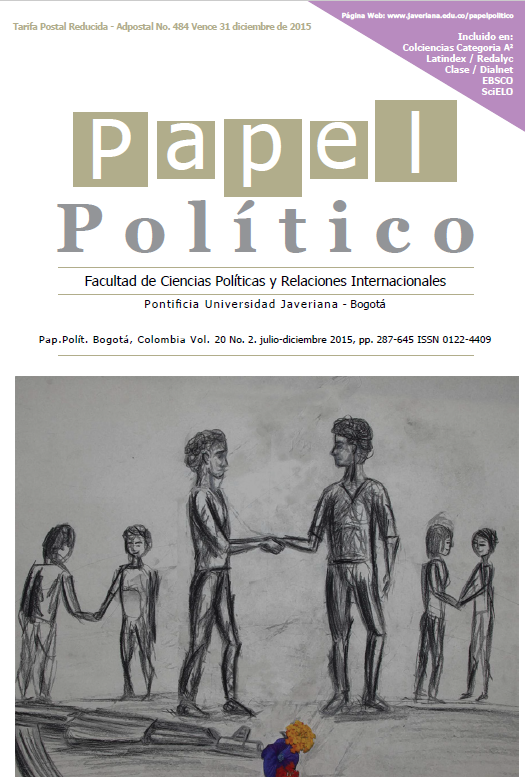Abstract
The Welfare State left welfarism as a characteristic element of community relations in the different contexts in which it was applied. The same crisis reached by this model of state raised the so-called "Status window" as an exercise of access of various groups to "demand satisfaction" needs and even to "negotiate" those aspects of general interest through explicit or implicit in situations of high social vulnerability agreements. Such is the case of the processes of the call prior consultation in Colombia, arranged to ensure the protection of ethnic identity and descendant communities. The method reached such a point that communities are gathered around this instrument of participation for the public sector with the private sector, to achieve the support for large infrastructure projects, focused on private sector business interests but ignoring the social cohesion should experience these human groups. Recurrence social policies with differential and targeted approach are aspects that could help work greater impact in shaping public for these communities.
This journal is registered under a Creative Commons Attribution 4.0 International Public License. Thus, this work may be reproduced, distributed, and publicly shared in digital format, as long as the names of the authors and Pontificia Universidad Javeriana are acknowledged. Others are allowed to quote, adapt, transform, auto-archive, republish, and create based on this material, for any purpose (even commercial ones), provided the authorship is duly acknowledged, a link to the original work is provided, and it is specified if changes have been made. Pontificia Universidad Javeriana does not hold the rights of published works and the authors are solely responsible for the contents of their works; they keep the moral, intellectual, privacy, and publicity rights.
Approving the intervention of the work (review, copy-editing, translation, layout) and the following outreach, are granted through an use license and not through an assignment of rights. This means the journal and Pontificia Universidad Javeriana cannot be held responsible for any ethical malpractice by the authors. As a consequence of the protection granted by the use license, the journal is not required to publish recantations or modify information already published, unless the errata stems from the editorial management process. Publishing contents in this journal does not generate royalties for contributors.


